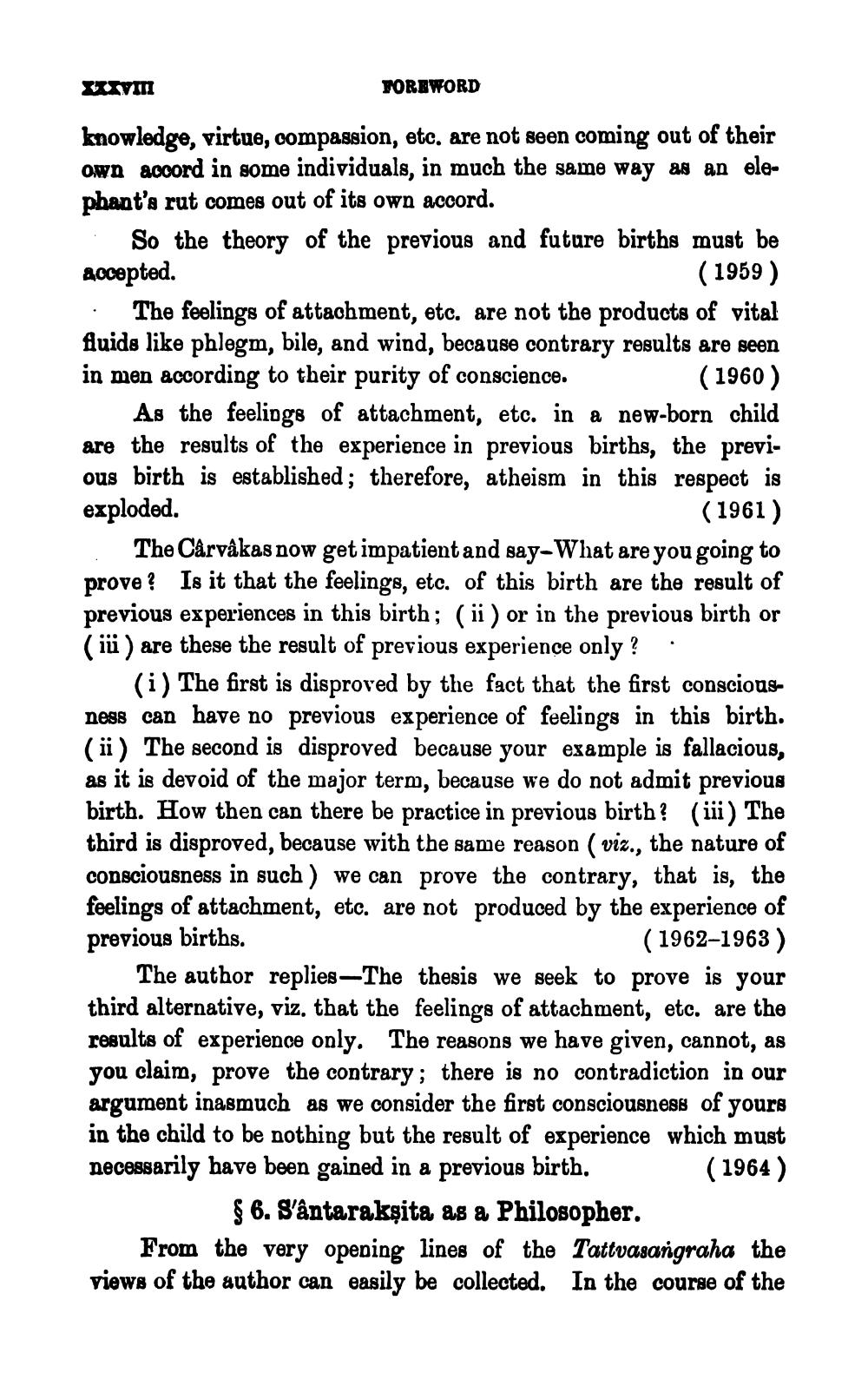________________
XVII
TOREWORD
knowledge, virtue, compassion, etc. are not seen coming out of their own accord in some individuals, in much the same way as an elephant's rut comes out of its own accord.
So the theory of the previous and future births must be Accepted.
(1959) • The feelings of attachment, etc. are not the products of vital fluids like phlegm, bile, and wind, because contrary results are seen in men according to their purity of conscience.
(1960) As the feelings of attachment, etc. in a new-born child are the results of the experience in previous births, the previ. ous birth is established; therefore, atheism in this respect is exploded.
(1961) The Cårvâkas now get impatient and say-What are you going to prove? Is it that the feelings, etc. of this birth are the result of previous experiences in this birth; (ii) or in the previous birth or (ii) are these the result of previous experience only? .
(i) The first is disproved by the fact that the first consciousness can have no previous experience of feelings in this birth. (ii) The second is disproved because your example is fallacious, as it is devoid of the major term, because we do not admit previous birth. How then can there be practice in previous birth? (iii) The third is disproved, because with the same reason (viz., the nature of consciousness in such ) we can prove the contrary, that is, the feelings of attachment, etc. are not produced by the experience of previous births.
(1962–1963) The author replies—The thesis we seek to prove is your third alternative, viz, that the feelings of attachment, etc. are the results of experience only. The reasons we have given, cannot, as you claim, prove the contrary; there is no contradiction in our argument inasmuch as we consider the first consciousness of yours in the child to be nothing but the result of experience which must necessarily have been gained in a previous birth. (1964)
$ 6. S'ântarakṣita as a Philosopher. From the very opening lines of the Tattvasangraha the views of the author can easily be collected. In the course of the




